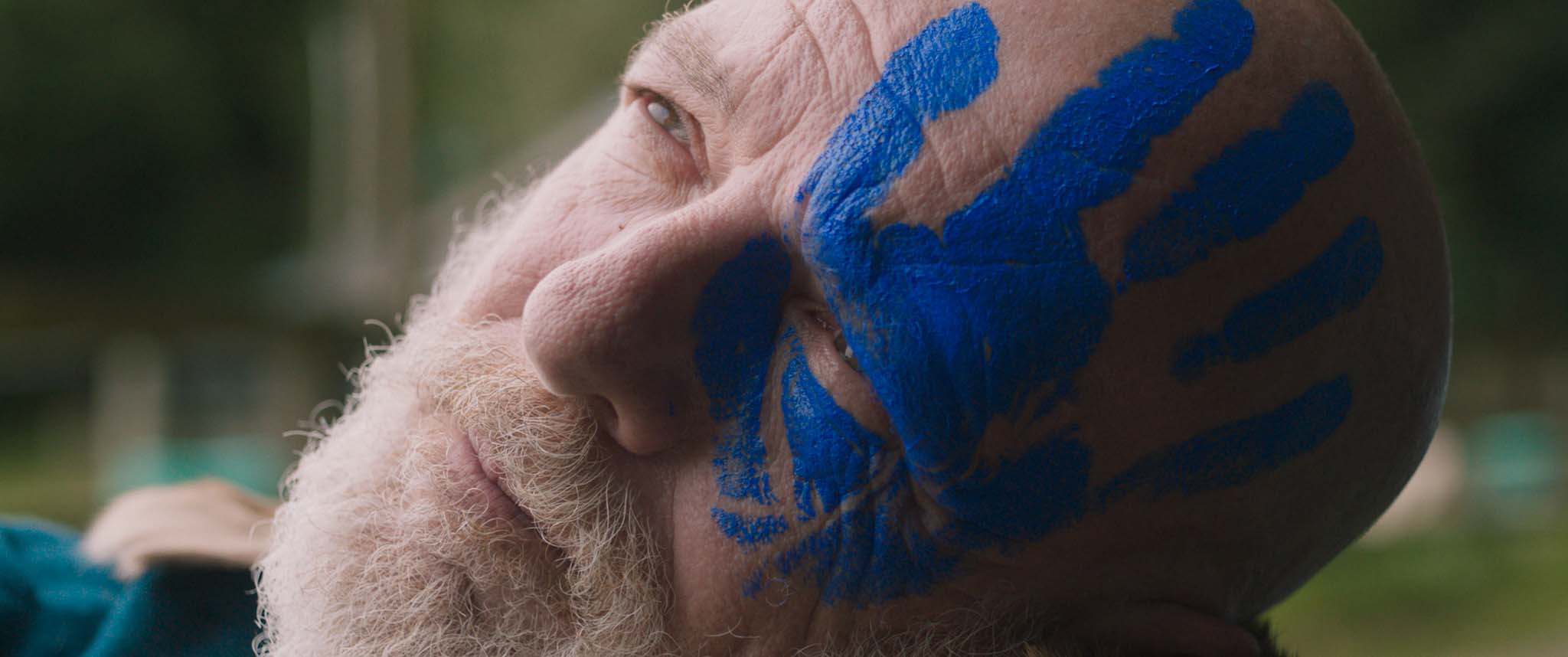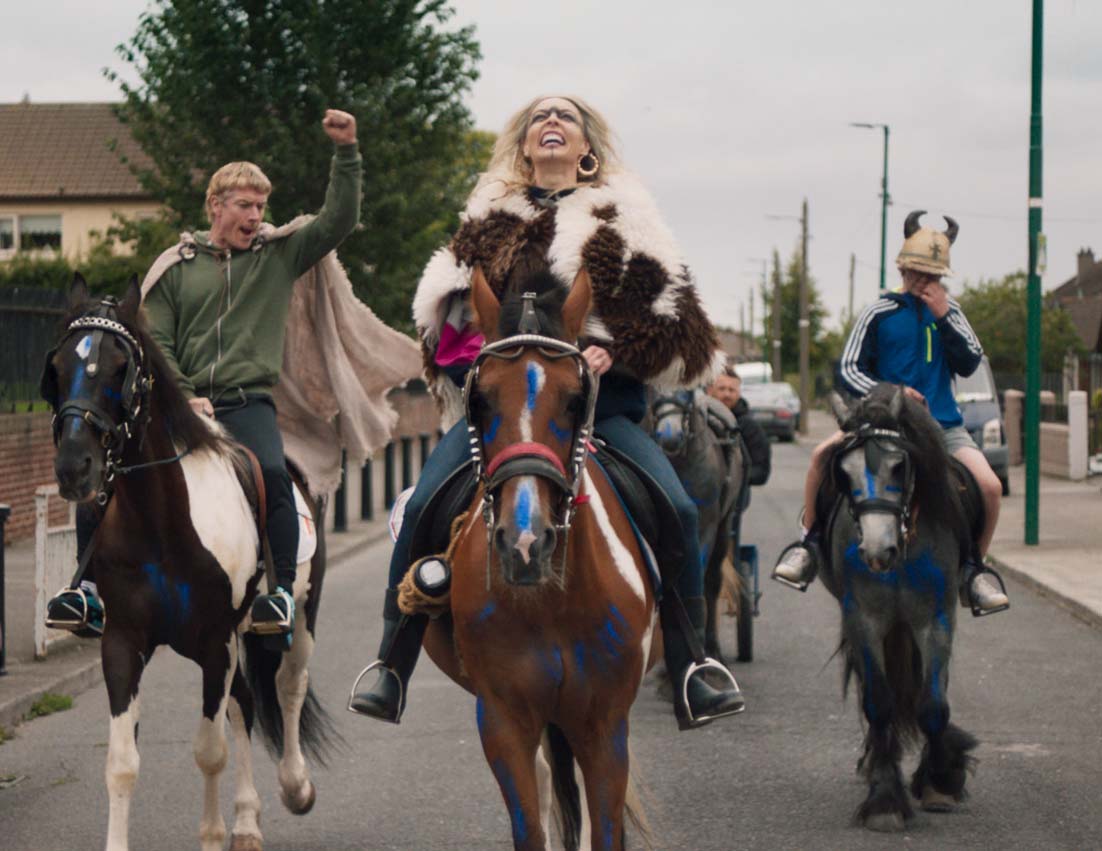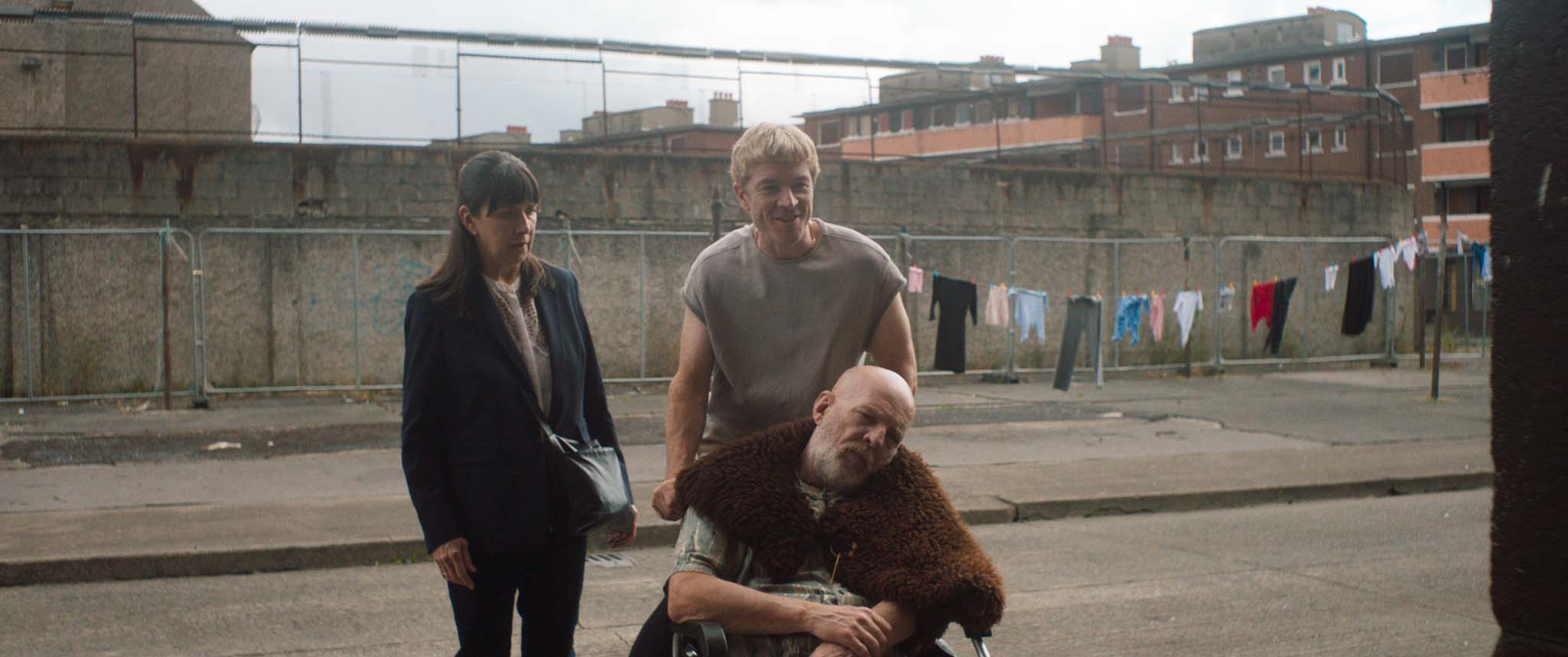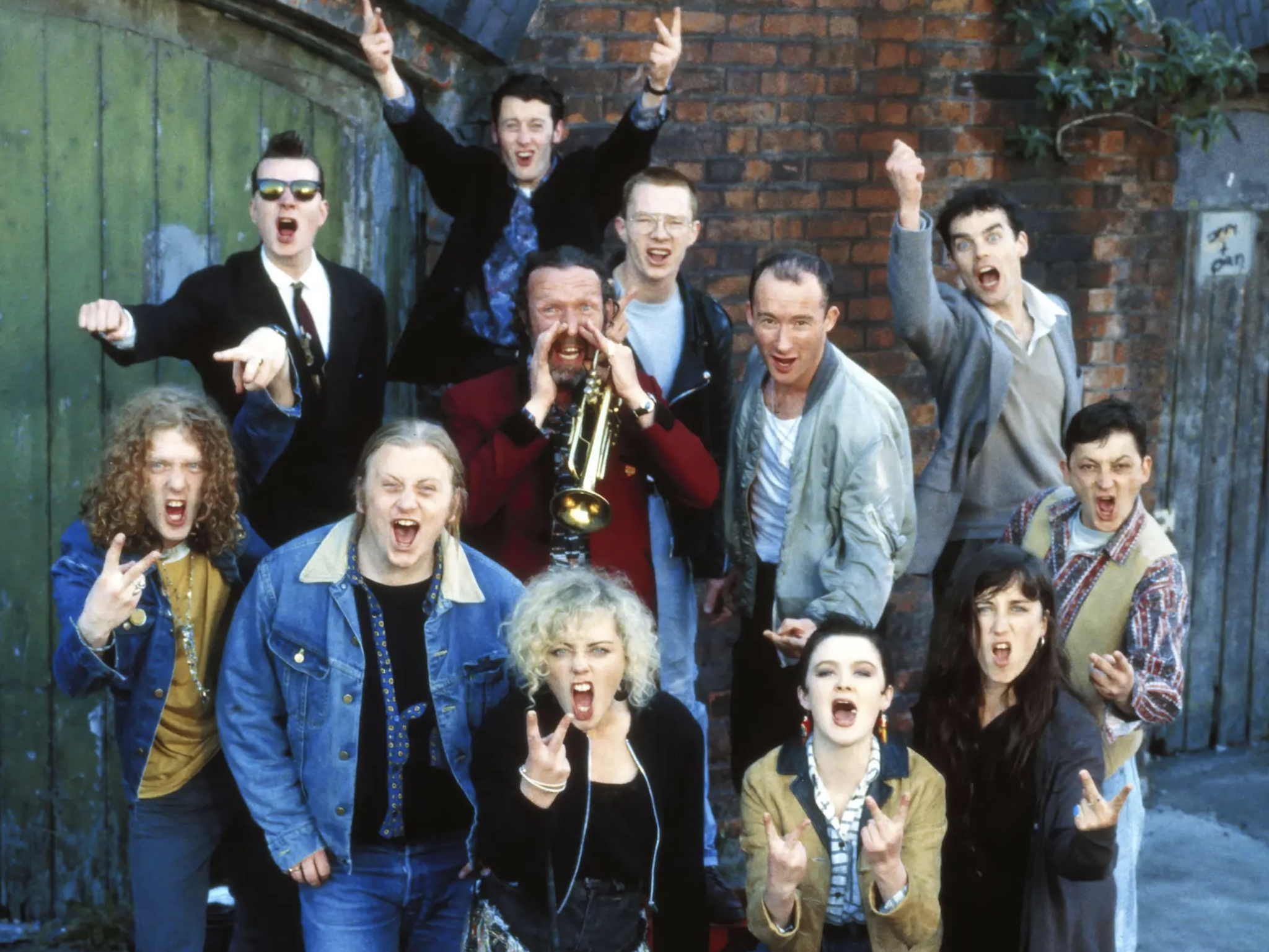- Film And TV
- 20 Jun 23

Acclaimed actor Liam Carney discusses his powerful new drama Sunlight, in which he plays a man with motor neuron disease.
Liam Carney has been a staple of Irish theatre, television and film for over thirty years, starting with Paul Mercier’s theatre company Passion Machine, then getting his break in the beloved film, The Commitments. Since then, he’s become a staple of Irish television through his roles in Glenroe, Fair City and Red Rock; made a name for himself in the UK and beyond for his work on Ripper Street, The Virtues and Titanic: Blood And Steel; and appeared in wildly successful movies like Braveheart and Gangs Of New York.
Now, he’s back on home shores with Claire Dix’s tender film Sunlight. Carney plays Iver, a man with motor neuron disease who wants to choose how he dies. When his protege and recovering addict Leon (Barry Ward) discovers Iver’s plan, he panics at the prospect of losing his sponsor, mentor and father figure, and brings him across Dublin in a day, trying to show him the reasons to carry on.
The film is a poignant portrayal of the men’s relationship, but also looks at the impact of motor neuron disease, and opens up important questions about the right to die. Carney did a lot of research, including interviewing people with motor neuron disease, and he wanted to bring authenticity, empathy and respect to his performance, particularly the physicality of the role.
 Liam Carney in 'Sunlight'.
Liam Carney in 'Sunlight'.Advertisement
Iver uses a wheelchair, has difficulty holding his head up, and his speech can slur, which he feels self-conscious about at points – all things that can affect people with motor neuron disease, along with respiratory issues, loss of power in their limbs, incontinence and the inability to speak.
Portraying an illness or disability onscreen comes with the responsibility to do it respectfully and truthfully, and the issue of assisted dying can be particularly emotional. Carney is thoughtful and passionate about the topic.
“The people I spoke to were quite happy to have the story portrayed onscreen,” he says. “They wanted to be able to see it depicted for them and their families. It’s a disease where you can end up trapped in your own body, where you can’t move, and eventually you get to the point where you can’t even breathe voluntarily or communicate.
“So my character Iver is aware of this and he wants to make this decision while he still can. He wants to choose his exit and time so he’s in control, and he’s not left trapped. And that’s a good thing not only for the people with the condition, but for the people who have to watch them.”
 Sunlight.
Sunlight.Carney alludes to his own family’s story.
Advertisement
“My father had Alzheimer’s,” the actor reveals. “He had it for a good few years before he died and it was really heartbreaking. It was really heartbreaking for my mother, because she lost him twice; she lost him when he couldn’t recognise her and she lost him when he died. But it’s nothing compared to this.
“This disease, it can be like watching your relative become completely trapped, unable to communicate, not knowing if they’re in pain, not knowing if they want to die or not. So I think it’s a really important thing for this film to start this discussion. Just over the weekend, I met a man who mentioned there’s a Right To Die conference in Dublin in September where the topic will be discussed, and I really think it’s an important thing to talk about.”
The topic is indeed important – but the film is filled with humour and tenderness, with Ward bringing an irrepressible energy to the role of Leon. The characters’ love of Viking warriors results in great scenes of them journeying around Dublin with horses, donning face paint and cloaks. Carney himself isn’t into Vikings, but he’s spiritual in his own way – even occasionally scandalising local townspeople.
“I’m into Native American culture and I always have been,” he notes. “My twins are 35 now, but when they were babies we didn’t do a traditional baptism. Instead we did a welcoming ceremony that was influenced by some Native American stuff, some Celtic stuff. And all the neighbours and everyone we know were down. At one point myself and their mother held them both up to the sky, then put them on the earth, asking the spirits to look after them.
“But in the local paper, the New Ross Standard, there was a picture on the front with me and their mother each holding a baby up to the sky, with my brother as this Druid guy in the middle, and the headline was ‘Twin Babies Offered Up In Ritual At Holy Well’! (Laughs) I love it! It was a grabby headline, but the article did mention that there were no sacrifices made! It’s just a different form of spirituality.”
 Sunlight.
Sunlight.Advertisement
Carney has been around long enough to work with icons like Daniel Day-Lewis several times, including in The Boxer and Gangs Of New York, and remembers working with Brendan Gleeson when the Oscar-nominated star of The Banshees Of Inisherin had just started acting.
“I worked with Brandon back in the day, this was at Passion Machine when he was still teaching,” recalls Carney. “And I had conversations with him about why he wouldn’t give up the teaching, and it was very understandable – it was a steady job and he had a young family.
“And then he came into Glenroe when I was in it, and we ended up in a few things together over the years. I’m so happy for him. He got a good break – he has the talent. And then there are people who are just as talented and haven’t got the break or the lucky roll. That’s the business. It’s about perseverance, having a hard neck, and luck.”
For Carney, it was The Commitments in 1991 that felt like his big break, and he was faced with the choice of moving abroad to chase the Hollywood dream – but chose not to.
“A lot of people pursue the idea of going to America but my decision was based on a few things,” he muses. “I would have needed a few bucks which I didn’t have. I was just going through the break-up of a marriage and I was afraid that if I went to America, I would lose contact with the kids and that relationship would suffer. I decided to stay so I would have that relationship, and because I do love Ireland. For all its flaws, I do feel lucky to live here.”
 'The Commitments', 1991. Credit: Alamy.
'The Commitments', 1991. Credit: Alamy.Advertisement
Though having worked in theatre, television and film, Carney is acutely aware of the pressures facing actors working in Ireland. Some of the issues driving the writers’ strike in the States, such as the lack of royalty payments offered to writers whose shows are on streaming platforms, also affect Irish actors.
“We’ve been screwed over by numerous governments, the actors and artists,” he says. “They sold us down the drain with the Section 481 Tax Credit; we get no royalties for movies or shows we do here. I get royalties for programmes I’ve done in the UK like Ripper Street or The Virtues, but nothing under an Irish banner has ever paid me royalties and we’re all pissed off about that.
“Thankfully we have Gerry O’Brien, President of Irish Equity, who is really doing his very best to address that and get it changed. There was a recent committee that was set up to investigate, because if something comes in with an American or English crew or whatever, there’s a double standard that they will have certain royalties that they’ll get that we won’t – and we’re the indigenous artists, we’re the ones who are here.”
He warms to the theme.
“If I had done the body of work that I have done in the UK, I’d be very wealthy. I’m not,” Carney remarks candidly. “When I have no work, I have to go and sign on. When people see you in numerous different things, they think, ‘Oh he’s raking it in’, but that’s not the case. The Film Board and Screen Ireland are budgeted so that we artists get €125 a day. That is shocking.
“And of course it’s great to have a job, but at the same time – have some respect. We’re in this business a long, long time, have spent a lot of time honing our craft, and then the work we do is what sells Ireland abroad, even films like The Commitments. We do a great service for this country, but at the same time, we’re being short-changed.”
• Sunlight is in cinemas from June 16.
Advertisement
The new issue of Hot Press is out now.










